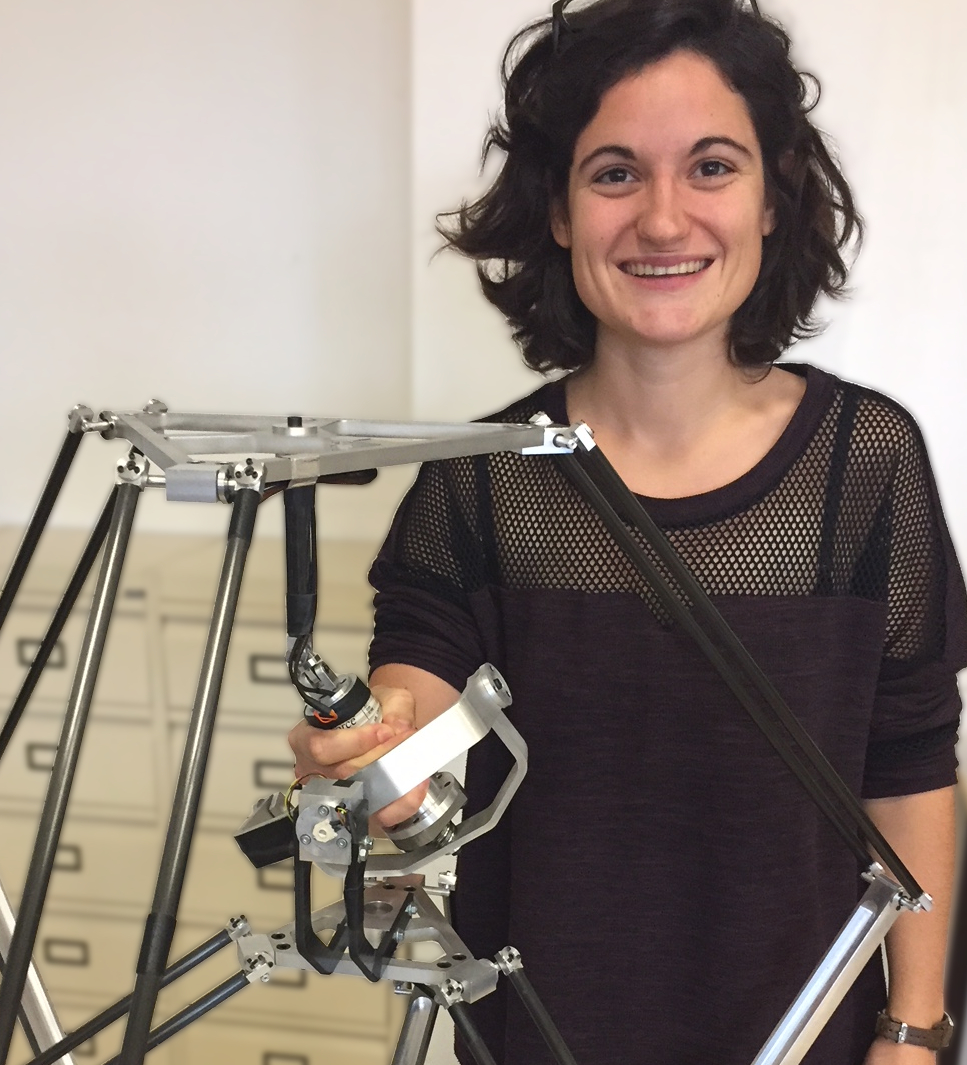Research
My research aims at rethinking how robots can assist and collaborate with Humans in a shared environement. The main challenge is to improve human-robot interaction and coordination to better perform shared activities.
To meet this goal, my works focus on four axes:
- Mechatronic design of robotic systems,
- Control of human-robot-environment interaction,
- Shared-autonomy approach of robotic assistance,
- Ergonomic and cognitive studies of human-robot collaboration.
I am particularly interested in augmented haptic teleoperation, where the robot and human agent interact remotly through a sensory-rich interface (motion, haptic, visual, auditory data).
Projects
SHAARE
Shared Haptics for Augmented Assistive Robot Expertise.
Inria Associate Team with IRiS lab at KAIST (Daejeon, South Korea).
ASAP-HRC
Rethinking Autonomy for Shared Action and Perception in Human-Robot Collaboration.
With Interactions - CeRCA & RoBioSS - Institut Pprime.
Farm3
Assisting humans by transferring skills to the robot in remote-controlled vertical farming.
With Farm3.
DROMADY
Artifical Intelligence to design optimal dynamic walking robots: a multidiscplinary codesign methodology.
With Gepetto - LAAS.
INTEROPS
Minimizing cognitive workload in visuo-haptic teleoperation of an industrial robot.
With Interactions - CeRCA.
Compact haptic design
Design and control of a compact 7-DOF haptic device, a high-fidelity interaction in extended workspaces.
With Stanford Robotics Lab - AI Lab - Stanford University.
Publications
Journal articles 24 documents
Conference papers 24 documents
Preprints 24 documents
Thesis 24 documents
Reports 24 documents
Book chapters 24 documents
Patents 24 documents
The SHAARE associate team is created in 2024 between the IRiS lab at KAIST and the Auctus team at Inria, to share our complementary methodological orientations in haptic shared control. Together, we aim at developing shared-control approaches that, either, better guide the human through adaptive haptic guidance, or adjust the robot behavior according to the human gestures.
The IRiS lab develops virtual-fixture feedback, generated from a task description given by the user. Our partner also …
[Read More]
Context This internship is part of a research project on haptic guidance. Haptic guidance provides force feedback to help an operator to remotely operate a robot thanks to a haptic interface. The purpose of these forces is to induce a certain behavior of the robot with respect to the task, such as following a reference trajectory or applying a precise interaction force. The advantage of using such guidance methods is to relieve the user’s cognitive workload during the teleoperation through …
[Read More]
Context Recent progresses in robotics, which tend toward assistive systems or versatile collaborative robots, could make a reorganization of industrial sites possible in order to preserve the health of human workers, by improving their working conditions, while enhancing the value of human expertise and skills. Such a transformation of work requires to rethink robotic control approaches, both in terms of safety and physical capabilities, to enable the robots to help humans in their activity and …
[Read More]
Context A postdoctoral position is opened in collaboration between the AUCTUS team at Inria and the IRiS lab at KAIST, about shared control and skill transfer in haptic teleoperation.
The postdoc contract will have a duration of one year, later extendable. The postdoctoral fellow will be recruited at the Inria center of the University of Bordeaux (AUCTUS team), where he/she will start the research project. A six-month exchange period will be planned at KAIST (IRiS lab) to share the works and …
[Read More]
